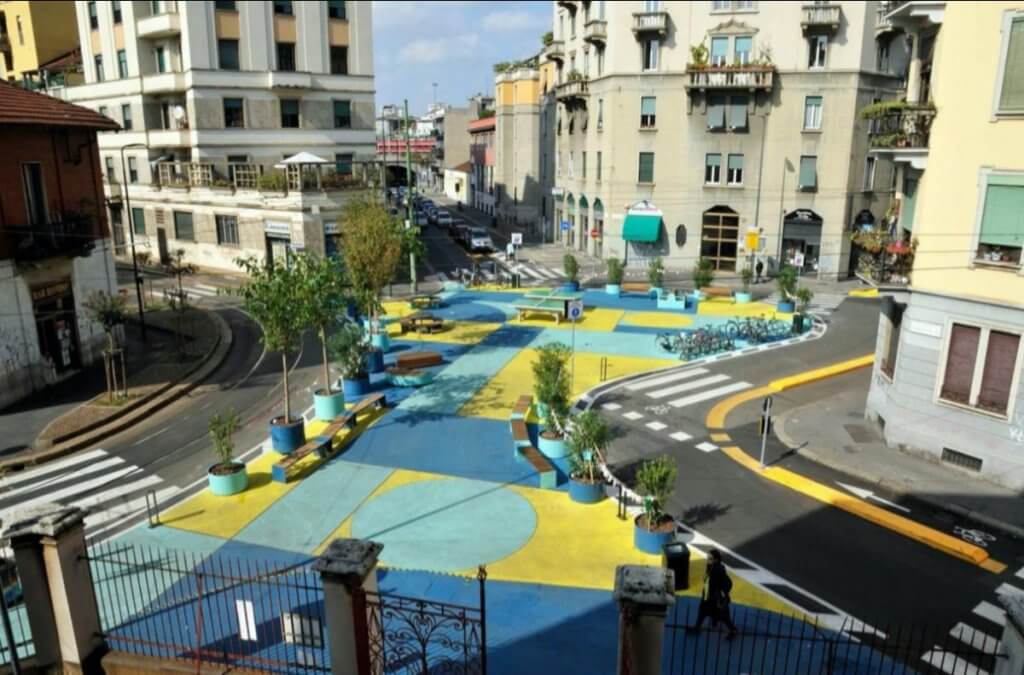
This week:
The age of congestion is over. The time of the bike has come.
Welcome back to Govsight.
First of all, 10 brownie points if you spotted the Lord of the Rings reference. Secondly, let’s get on and talk about active transport because last week has seen some very exciting developments and announcements.
Helping us in this week’s analysis, we’re honoured to have help from the renowned city and technology leader Professor Greg Clark CBE and Milan’s Deputy Mayor responsible for mobility Marco Granelli.
Make sure you follow the conversation on our Twitter and if you’ve been forwarded this email, you can sign up here.
Enjoy,
George Lintott
Editor, Govsight
A new era for active transport
What’s happening here?
Last week, Transport Secretary Grant Shapps announced a £250 million emergency active travel fund, which will be the first stage in a five-year £2 billion investment.
Incentivised in the immediate stage will be ‘pop-up bike lanes with protected space for cycling, wider pavements, safer junctions, and cycle and bus-only corridors.’ E-scooters are also being trialled.
Why is this important?
Central government seems to be throwing its weight behind active transport as a key method for maintaining social distancing. Taking a leaf out of Bogotá and Milan’s book (read on below), authorities have realised cities are at a crossroads when it comes to how people move.
As Laura Laker surmised in the Streets Ahead podcast, with the majority of urban-folk worried about using public transport without a vaccine, they are faced with a choice between ‘business as usual’ modes of transport like commuting by car or sustainable, healthy and affordable options. Evidently, governments are incentivising the latter. Exciting times!
Containment of Covid-19 through soft and sustainable mobility

What’s happening here?
We spoke to the Deputy Mayor responsible for mobility in Milan, Marco Granelli, about what their plans are.
“In order to prevent excessive use of private cars, with the consequent increase in air pollution, the city of Milan will encourage the use of bicycles – both regular and pedal-assisted electric – as well as electric scooters and push scooters – both private and shared.
“To that aim, Milan is planning 35 km of new cycle pathways (in addition to the current 220 km) and new parking for bicycles and scooters.”
More information here.
Why is it important?
A recent statistic estimated that there were 11,000 fewer premature deaths in Europe due to cleaner air over April 2020. Startling still, in new research pollution has been linked to exacerbating the spread of Covid-19. Seemingly Milan came to the same realisation.
Apart from the doom and gloom of pollution, there will be other upticks. As the Deputy Mayor puts it: “It will also be key that the city has a new pace of living.” I mean, look at the picture above, looks like a livable place right? A slower pace of living? Sounds like mindfulness is starting to meet mobility.
The ‘Business as Usual’ crossroads
What’s happening here?
We spoke to Professor Greg Clark CBE, who gave his personal opinion regarding the new “business as usual.” He identifies seven things to have come out of this pandemic, that we should retain:
- The relocalisation of supply chains and trade routes to make us more resilient;
- The permanent uptick in the use of digital services;
- The prioritisation of human health and well-being;
- Arresting climate change and recognising the connection between planetary and human health, particularly in our food systems;
- The new spatial patterns that emerge such as how we need to use new and diversified mobility and transport systems;
- New global geopolitics that focuses on the health of humans and the planet, with a more active role for nation-states as a force for protecting people and protecting the planet;
- A new social contract that has emerged from the new neighbourliness and the solidarity that’s been happening as a result of this lockdown.
Why is this important?
I’ll let Greg explain:
“It’s a healthcare crisis. It’s an economic shock, but it’s also a catalyst to achieve a new way of living and being. And that will involve nurturing and encouraging these seven themes to be part of what we do next.
“I see a new coalition emerging around a desire to use the Covid-19 crisis as the accelerator towards changing our planet and our way of life for the better.”
Opportunities
- UKRI’s Innovate UK are looking for suppliers to design and run a social responsibility incubation project with startups in India. Apply here. Closes 22 May.
- New Anglia Local Enterprise Partnership is searching for a BI tool that can unite two data streams gaining insights for their Growth Hub. Apply for it here. Closes 22 May.
- The Office for National Statistics is looking for a specialist to help in the digitalisation of data held in historical census volumes. Apply here. Closes 29 May
- The General Dental Council is looking for data platforms that can help the organisation gain insights into fitness to practice certification. Apply for it here. Closes 1 June.
SME Advice
Small Business Resilience Programme
Launched by Newable and supported by JP Morgan, the new programme will help support SMEs through funding and navigating this economic shock. More information here.
Tech Together with Tech.London
Tech.London has launched a repository of advice, events, support and other topics for the London tech ecosystem during this pandemic. If you’re looking for support look no further.
Govsight is Nitrous’ fortnightly digest, filled with pocket-size insights into how technology is disrupting cities (CityTech).
At Nitrous, we work with the public sector, corporate actors and tech SMEs to develop co-creation ventures that address city challenges.





